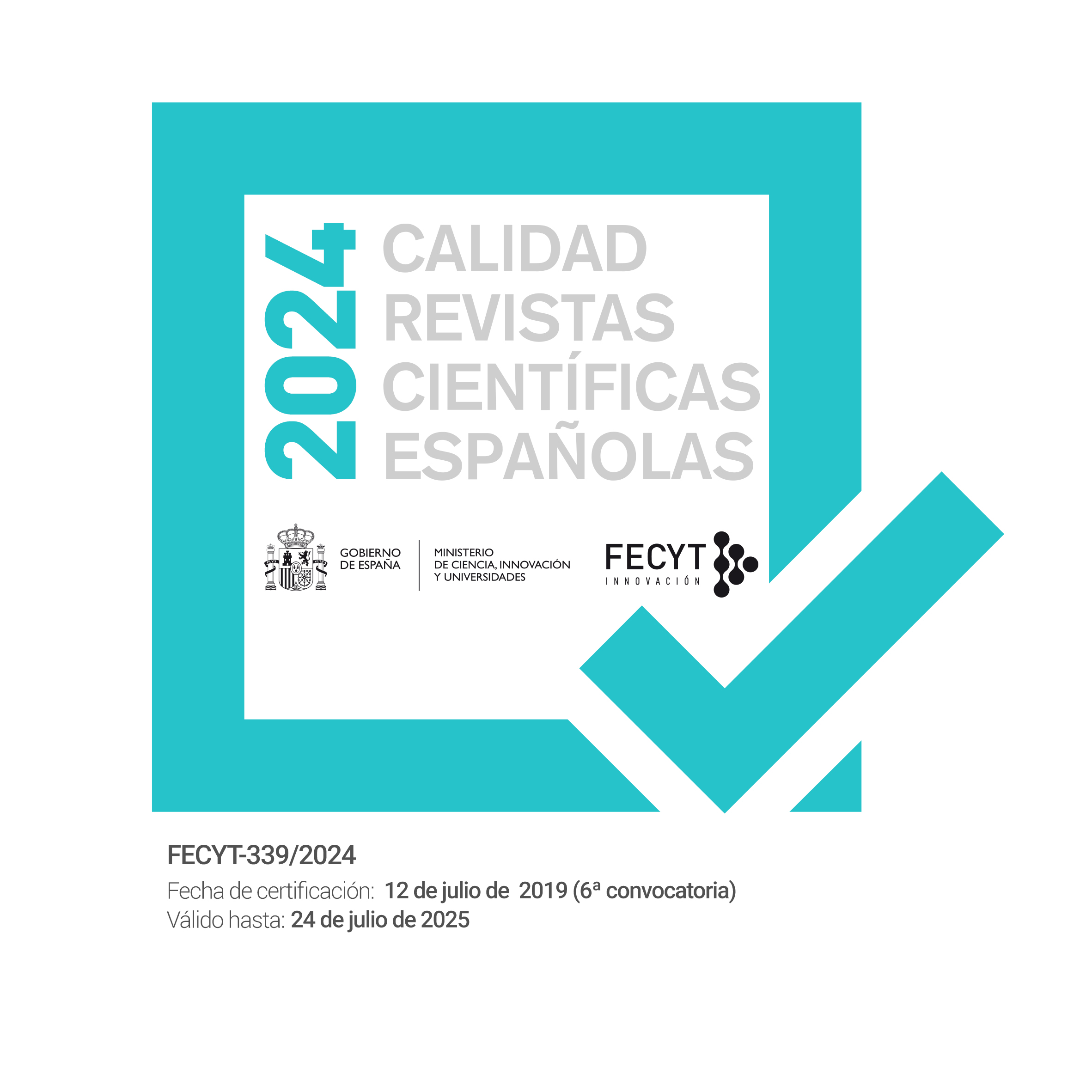Jaspers, Heidegger and the Technique’s Existential Alienation
DOI:
https://doi.org/10.24310/crf.16.1.2024.17646Keywords:
technique, Jaspers, Heidegger, Organisation, Gestell, existencial alienationAbstract
Technique is not just another phenomenon of our time, but has become the metaphysical figure that defines it. This study analyzes the scope of this thesis put forward by Jaspers and Heidegger. To do so, we first offer a thematisation of the innovative element that characterizes modern Technique with respect to previous epochs, paying special attention to its totalising character and the anthropological inversion that it entails. We will then discuss some of the anthropological consequences of the ontological status of Technique. An unprecedented phenomenon, since the Technique has ceased to be a means at the service of human’s needs and ends to become a phenomenon capable of producing them, establishing possibilities of meaning. An onto-anthropological inversion that provokes an alienation of existence itself.
Downloads
Metrics
Publication Facts
Reviewer profiles N/A
Author statements
Indexed in
-
—
- Academic society
- N/A
- Publisher
- Asociación para la promoción de la filosofía y la cultura en Málaga (FICUM) y UMAEditorial
References
Dessauer, F. (1927): Philosophie der Technik. Das Problem der Realisierung. Bonn: Cohen.
Dessauer, F. y Hornstein, X.v. (1945): Seele im Bannkreis der Technik. Freiburg: Olten.
Heidegger, M. (1959): Gelassenheit. Pfullingen: Günter. Trad. esp. Y. Zimmermann (2009), Serenidad. Barcelona: Ed. Serbal.
Heidegger, M. (1976): «Brief über den “Humanismus”», en M.Heidegger, Wegmarken. Gesamtausgabe [GA] 9. Frankfurt: Klostermann.
Heidegger, M. (1977): «Die Zeit des Weltbildes», en M. Heidegger, Holzwege. GA 5. Frankfurt: Klostermann.
Heidegger, M. (1985a): «Die Frage nach der Technik», en M. Heidegger, Vorträge und Aufsätze. Pfullingen: Neske.
Heidegger, M. (1985b): «Überwindung der Metaphysik», en M.Heidegger, Vorträge und Aufsätze. Pfullingen: Neske.
Heidegger, M. (1985c): «Wissenschaft und Bessinung», en M.Heidegger, Vorträge und Aufsätze. Pfullingen: Neske.
Heidegger, M. (1986): Sein und Zeit. Tübingen: Niemeyer.
Heidegger, M. (1988): «Die Onto-Theo-Logische Verfassung der Metaphysik / La constitución onto-teo-lógica de la metafísica», en M.
Heidegger, Identidad y diferencia / Identität und Differenz. Barcelona: Anthropos. (Edición bilingüe. Trad. esp. H. Cortés y A. Leyte).
Heidegger, M. / Jaspers, K. (1992): Briefwechsel 1920-1963. München: Piper.
Jaspers, K. (2017): Vom Ursprug und Ziel der Geschichte, en Karl Jaspers Gesamtausgabe I/10. Muttenz/Basel: Schwabe.
Jaspers, K. (1953): Origen y meta de la historia. Revista de Occidente, Madrid (trad. esp. F. Vela).
Mitcham, C. (1989): ¿Qué es la filosofía de la tecnología? Barcelona: Anthropos.
Taminiaux, J. (1983): «L´essence vraie de la technique», Cahier de L´Herne. Martin Heidegger. Dirigido por Michel Haar, París.
Rodríguez Suárez, L.P. (2018): «El sentido de la angustia en el mundo técnico», Utopía y Praxis Latinoamericana. Revista Internacional de Filosofía Iberoamericana y Teoría Social, 80, pp. 145-158.
Rodríguez Suárez, L. P. (2019): «El fenómeno de la técnica en la era de la información», en D. Cabrera (coord.): Cosas confusas. Comprender las tecnologías y la comunicación. Valencia: Tirant Humanidades.
Downloads
Published
How to Cite
Issue
Section
License
Copyright (c) 2023 Luisa Paz Rodríguez Suárez

This work is licensed under a Creative Commons Attribution-NonCommercial-ShareAlike 4.0 International License.
Esta revista provee acceso libre inmediato a su contenido bajo el principio de hacer disponible gratuitamente la investigación al público. Todos los contenidos publicados en Claridades. Revista de Filosofía, están sujetos a la licencia Creative Commons Reconocimento-NoComercia-Compartirigual 4.0 cuyo texto completo puede consultar en <http://creativecommons.org/licenses/by-nc-sa/4.0>
Es responsabilidad de los autores/as obtener los permisos necesarios de las imágenes que están sujetas a derechos de autor.
Los autores/as cuyas contribuciones sean aceptadas para su publicación en esta revista conservarán el derecho no exclusivo de utilizar sus
contribuciones con fines académicos, de investigación y educativos, incluyendo el auto-archivo o depósito en repositorios de acceso abierto de cualquier tipo.
La edición electrónica de esta revista esta editada por la Editorial de la Universidad de Málaga (UmaEditorial), siendo necesario citar la procedencia en cualquier reproducción parcial o total.

















6.png)
